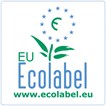Paper Towels Vs Hand Dryers - Pros and Cons
Paper Towels Vs Hand Dryers - Pros and Cons

Paper Towels are definitely the most hygienic way to dry your hands. You are using an absorbent piece of paper to dry your hands, and it is actually the preferred method for the general pubic (C. Huang et al. 2012). This study assessed twelve groups, and the groups reported little effectiveness in the use of hand dryers, and all preferred hand towels. In fact the study also went on to report that hand towels are not only preferred, but cause less contamination and are in fact superior to hand dryers in terms of infection control – so should always be used in hospitals and clinics. As paper towels are so quick and easy to use, it is a sensible conclusion that most people will use them meaning that less pathogens and contamination are spread.
Paper Towels are definitely a nose a head now…. Right? But if we talk about the Pros of Hand Dryers, they also have their advantages. Hand dryers do keep everything looking tidier, there are no handtowels on the floor, no overflowing bins, they are also said to be better for the environment so that’s all really good. Some of the most advanced hand dryers can be really efficient in hand drying, drying off all water in a matter of seconds.

Confused…… lets continue then to the disadvantages where all will become clear……
Paper towels do have a list of cons in terms of cost of continually stocking up, choosing the right towel to ensure low cost in use and making sure that the toilets are regularly checked to make sure that it is clean and there are no paper towels lying around. There is also the environmental concerns about hand towels, because they are made out of paper right? Sure, but if you choose the right kind of supplier, who can provide a sustainable Eco Label Paper Product you can ease your conscience with the facilities you are providing.
“Established in 1992 and recognised across Europe and worldwide, the EU Ecolabel is a label of environmental excellence that is awarded to products and services meeting high environmental standards throughout their life-cycle: from raw material extraction, to production, distribution and disposal. The EU Ecolabel promotes the circular economy by encouraging producers to generate less waste and CO2 during the manufacturing process. The EU Ecolabel criteria also encourages companies to develop products that are durable, easy to repair and recycle.
The EU Ecolabel criteria provide exigent guidelines for companies looking to lower their environmental impact and guarantee the efficiency of their environmental actions through third party controls. Furthermore, many companies turn to the EU Ecolabel criteria for guidance on eco-friendly best practices when developing their product lines.”


At Astral Hygiene, we are working towards having only Eco-Label products where we can, to make sure we are providing sustainable paper solutions to ever customer. Now this is happening currently here at Astral, and will take time to complete but we do have an Eco-Label Hand Towel currently to go along with our Eco Label Centre Feed, and our Three Domestic Toilet Rolls we have here. We also have a range of chemicals, soaps, professional paper systems etc, so come and talk to us about it.
The Cons for hand dryers are much more extensive and the most important is the hygiene of these machines. So a hand dryer has a filter, which filters the air which is sucked through the machine, and it also has a filter which filters the air when the warm air is blown through on to your hands. So lets talk about the air in the bathrooms. So when an individual goes to the toilet they will flush the toilet. In public toilets sometimes there is no lid, or the lid is not put down – so when you flush all of the molecules fly in to the air and some of them will get sucked in to the filters of the hand dryers. What are these molecules? They are faecal bacteria, pathogens, and bad bacteria – which when it enters the hand dryer gets heated up (which is great for bacteria to breed!) and are then spewed out on to your hands – nice! As the hand dryer remains on the wall, the bacteria multiply, the bacteria get pushed out in to the air and then sucked in to the dryer again – so hand dryers are a hive of activity for bacteria to grow, multiply and contaminate. If that wasn’t bad enough, you do need to call an electrician in the event of a breakdown, meaning you will need to supply hand towels while you wait for them to come and fix it, and a lot of children don’t like the noise of hand dryers.
Conclusion
The research I have referenced during this blog has said that most people do prefer hand towels, but hand dryers are becoming more and more prevalent, potentially because of the low cost in use. With the higher awareness of hand hygiene, and how clean hands help to reduce the spread of disease, hand towels are becoming more and more important in infection control and reduction of contamination from one area to another. Personally, having worked in the hygiene sector for a long time, I will not go near a hand dryer, and in bathrooms with only a hand dryer present I feel that they are missing a trick.
So you can take this information and do what you will with it, ultimately the choice is yours, and we all have our own preference.
Take a look at our Paper Towel Range, and our Hand Dryer Range on our website. If you’d like any assistance you can always give myself or my team a call on the main number 01835 824 342.
References
The Hygienic Efficacy of Different Hand-Drying Methods: A Review of the Evidence. Mayo Clin Proc. 2012 Aug; 87(8): 791–798. C. Huang, W. Ma, & S. Stack. (Article here: https://www.ncbi.nlm.nih.gov/pmc/articles/PMC3538484/)

Comments
Post a Comment